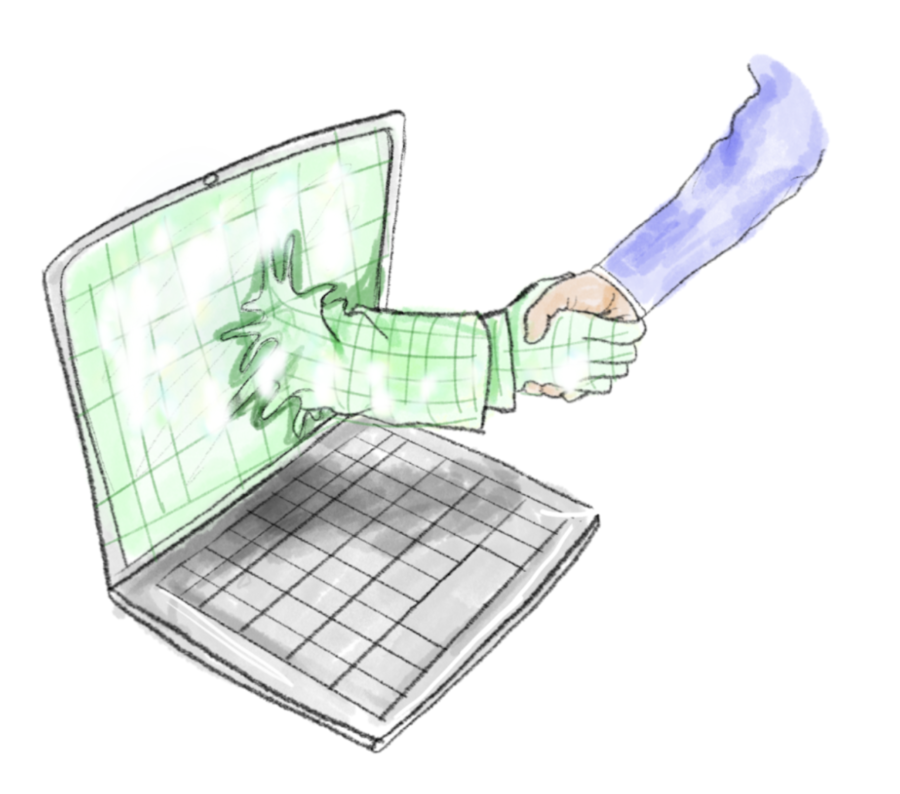The rise of technology has made plagiarism an ever-present issue. With the click of a button, students can find answer keys, summaries, sample essays and more that they can pass off as their own work. On Chegg.com students can share test answers, and on OPPapers.com students can find essays. The rise of artificial intelligence makes it even easier for people to get away with plagiarism and ultimately degrading people’s work ethic and integrity
In November, a San Francisco-based startup, OpenAI, launched a chatbot called ChatGPT. The core function of chatbots is to mimic a human conversation using artificial intelligence, and it works like a dialogue between the AI system and the user. However, ChatGPT has a plethora of new, unique features that past chatbots did not; ChatGPT can compose music, teleplays, fairy tales and student essays. It can answer test questions, code, and write poetry and song lyrics. It can even remember past conversations and learn from them, almost like a chatbot therapist—humanizing AI even more.
Unlike previous chatbots, ChatGPT is much more user-friendly and can be accessed by anyone with an internet connection for free, meaning students anywhere can use the technology.
While the versatile abilities of ChatGPT are impressive, it definitely has some substantial pitfalls. The first, and most obvious issue, is that ChatGPT is the perfect avenue for students to plagiarize and cheat. ChatGPT can generate unique, articulate and cohesive work within seconds. Each response produced by the AI is different than the last, so it is hard to use plagiarism tests on the work it produces. The only relatively easy way to prove that the work is plagiarized is to use AI tests.
Some schools have started to restrict the ChatGPT website on school devices and networks in order to discourage using it to cheat. The New York City education department is one of the first districts to restrict access to ChatGPT on school devices due to the negative impacts on student learning and concerns regarding the safety and accuracy of the content, according to The Associated Press. Still, students can access the site on their phones or any personal device.
While it’s true that ChatGPT increases the risk of plagiarism, fully banning it in schools is a mistake. Students must learn how to navigate a world where AI is woven into everyday lives. Schools would be better suited to teach students how to best utilize AI in an ethical way and understand its shortcomings. Banning the programs on a large scale is unrealistic because students can still access the programs outside of school.
Moreover, ChatGPT discourages students from critical thinking and learning by doing the work, as goes with any form of plagiarism or cheating. While taking the easy route might be nice in the short term, in the long run, it won’t set students up for success.
Instead of looking at ChatGPT as the enemy of teachers, people should look at it as an opportunity to learn about the abilities of AI and how to work with and around it. Students can be asked to analyze ChatGPT-generated reports and essays or to track down sources and fact check essays. According to Senior Emma Borders, her computer science teacher allows students to use ChatGPT to write some advanced code to aid in their learning and understanding of computer science. In that case, students are still thinking critically and doing the work all while learning about AI.
Additionally, ChatGPT is limited in some of its information which can lead to the spread of misinformation. It has little knowledge of recent events that have occurred since 2021 and will make false assertions. According to Time magazine, one user had ChatGPT generate an article that rampant voter fraud was present in the 2020 election, even though that was disproved after a thorough investigation. Although ChatGPT might be a helpful shortcut, it is not always a reliable source. It will be difficult for students to use it for more long-term or substantial projects, given ChatGPT’s limited knowledge in certain areas.
Artificial intelligence is the future, so we must adapt to it and learn how to best live with it. Programs like ChatGPT provide opportunities for us to discuss the ethics, benefits and harms of AI.

